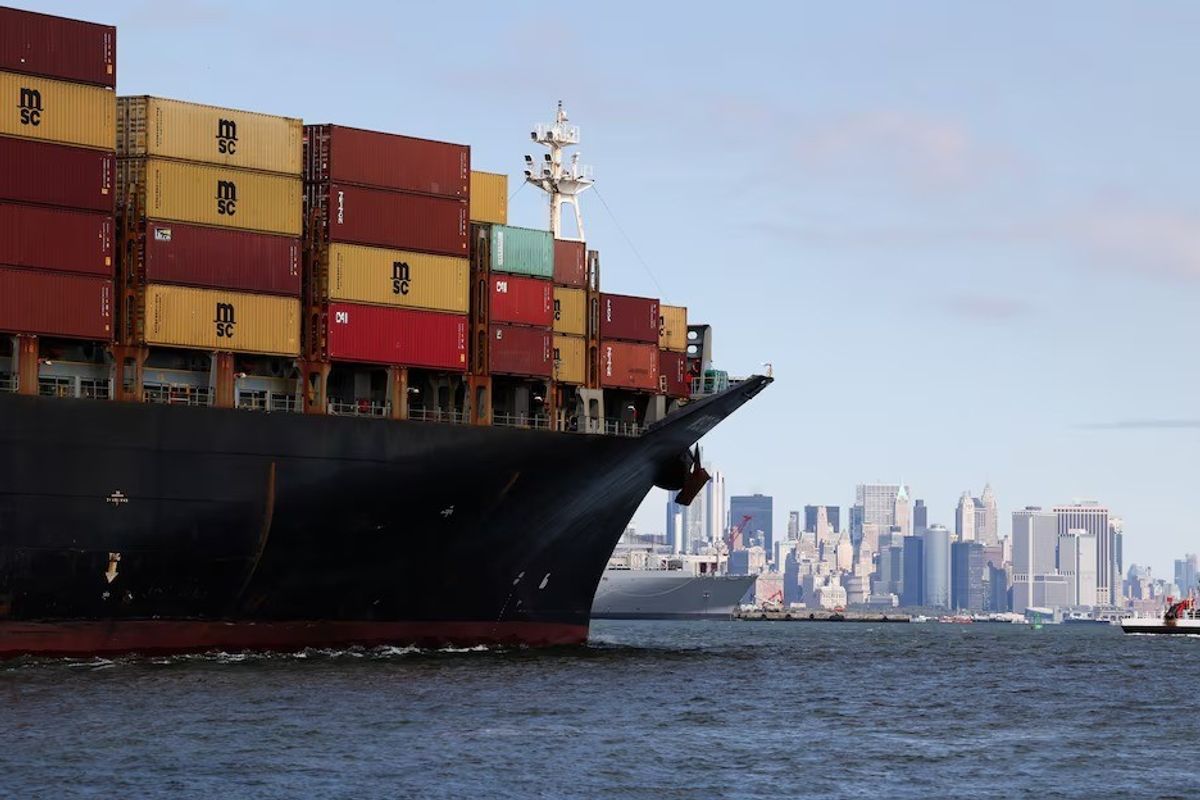Container shipping rates to continue declining in 2025: Fitch
Dry bulk volumes likely to grow by about 1% in 2025
Business Desk
The Business Desk tracks economic trends, market movements, and business developments, offering analysis of both local and global financial news.

Container shipping rates, which increased in early 2024 due to the Red Sea disruptions, are expected to continue their decline into 2025, Fitch Ratings noted in a report.
Despite the decline in rates since August, Fitch expects this trend to persist next year, as capacity absorption is gradually neutralized by new deliveries.
Although this trend is expected to negatively impact industry profitability, the contracted portion of revenues, with most contracts lasting less than a year, will partially mitigate the effects of declining spot rates on shippers' performance.
A swifter-than-anticipated resolution of disruptions could accelerate spot rate declines.
The performance of tankers and dry bulk is likely to remain robust in 2025. Tankers are projected to earn above-average profits, driven by high tonne-mile demand.
Conversely, oversupply and the alleviation of disruptions in the Red Sea may put pressure on global container shipping.
“We expect demand to grow in oil tankers and dry bulk in 2025, although more slowly than in 2024”.
The International Energy Agency (IEA) forecasts an increase in oil demand by 1 million barrels per day in 2025, predominantly supplied by sources outside OPEC+. Fitch Ratings noted, "Increased tonne-miles related to oil exports from Russia will support overall demand. Easing of geopolitical tensions and the Red Sea disruptions could affect demand growth."
Fitch projects a growth in dry bulk volumes of about 1% in 2025, down from 2.7% in 2024, driven by a decrease in global demand for iron ore and coal amid trade tensions. Grain exports are expected to provide some positive impact.
In 2025, Fitch anticipates relatively stable shipping rates in these segments, following some improvements in 2024. Container transport volumes are expected to increase by about 3% in 2025, outpaced by a supply growth of 5%.
The orderbook, representing 26% of the existing fleet, remains high despite new deliveries, reflecting ongoing new order intakes to replace aging vessels and upgrade fleets to multi-fuel capability to meet emission reduction targets.










Comments
See what people are discussing